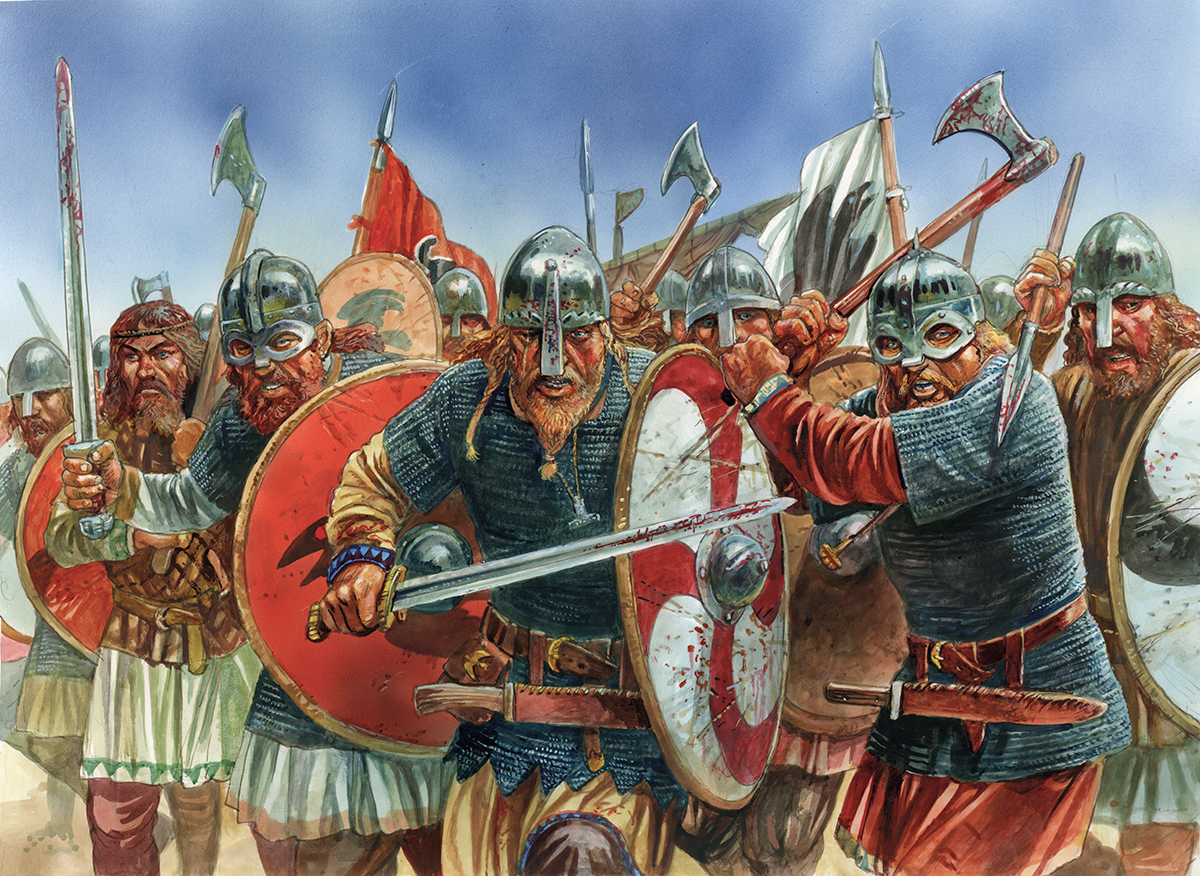

The Vikings regularly attacked coastal regions due to the difficult nature of defending such regions, as well as utilising rivers and stolen horses to raid deeper inland by the mid 9th century. This was one reason that monasteries and churches were often targeted, due to their wealth in relics and luxury goods like precious metals, fine cloths, and books such as the Codex Aureus which was stolen by a Viking and then sold to an Anglo-Saxon couple later on (a note was written inside the book after its recovery "I ealdorman Alfred and Wærburh my wife obtained these books from the heathen army with out pure money, that was with pure gold, and that we did for the love of God and for the benefit of our souls and because we did not wish these holy books to remain longer in heathen possession" ) Olaf Tryggvason and Olaf Haraldsson both led successful raiding campaigns that served their later claims to kingship. This wealth was then brought back to Scandinavia and used for political gain e.g. One of the reasons many Norse went a-Viking was the opportunity to gather loot and wealth by trading and raiding. These principal values and convictions were displayed in the tactics of Viking raids and warfare.Īs in most societies with limited mechanisms for projecting central power, Norse society also shared traits of bonding through mutual gift-giving to ensure alliances and loyalty.

Considering this, Norsemen believed there to be two possibilities in life: "success with its attendant fame or death." The necessity of defending honour with violence, the belief that time of death was preordained, adventure and fearlessness were core values to the Viking Age. Norsemen believed that the time of death for any individual is predetermined, but that nothing else in life is. With this prevalence of violence came the expectation of fearlessness. Honour could be shamed from mere insults, where Norsemen were legally allowed to react violently. Personal reputation and honour was an important value among Norsemen, and so actionable slander was also a legal category, in addition to physical and material injuries. This use of violence as an instrument regarding disputes was not limited to a man, but extended to his kin. As a natural consequence, violence was a common feature of the Norse legal environment. police-the enforcement of laws and verdicts fell upon the individual involved in a dispute. Lacking any kind of public executive apparatus-e.g. In the early Viking Age, during the late 8th century and most of the 9th, Norse society consisted of minor kingdoms with limited central authority and organization, leading to communities ruled according to laws made and pronounced by local assemblies called things.

Parts of the tactics and warfare of the Vikings were driven by their cultural belief, themselves rooted in Norse culture and religion, and vividly recalled in the later Icelandic sagas written in the 13th-14th centuries after the Christianisation of the Nordic world. Danes, Norwegians, Swedish, Hiberno-Scandinavians, Anglo-Scandinavians, or the inhabitants of any Scandinavian colony who affiliated themselves more strongly with the culture of the colonizer than with that of the indigenous population." Vikings, according to Clare Downham in Viking Kings of Britain and Ireland, are "people of Scandinavian culture who were active outside Scandinavia. Vikings' tactics in warfare gave them an enormous advantage in successfully raiding (and later colonising), despite their small population in comparison to that of their enemies. What started as Viking raids on small towns transformed into the establishment of important agricultural spaces and commercial trading-hubs across Europe through rudimentary colonization. While maritime battles were very rare, Viking bands proved very successful in raiding coastal towns and monasteries due to their efficient warships, and intimidating war tactics, skillful hand-to-hand combat, and fearlessness. In this era, Viking activity started with raids on Christian lands in England and eventually expanded to mainland Europe, including parts of present-day Russia. The term " Viking Age" refers to the period roughly from 790s to the late 11th century in Europe, though the Norse raided Scotland's western isles well into the 12th century.


 0 kommentar(er)
0 kommentar(er)
